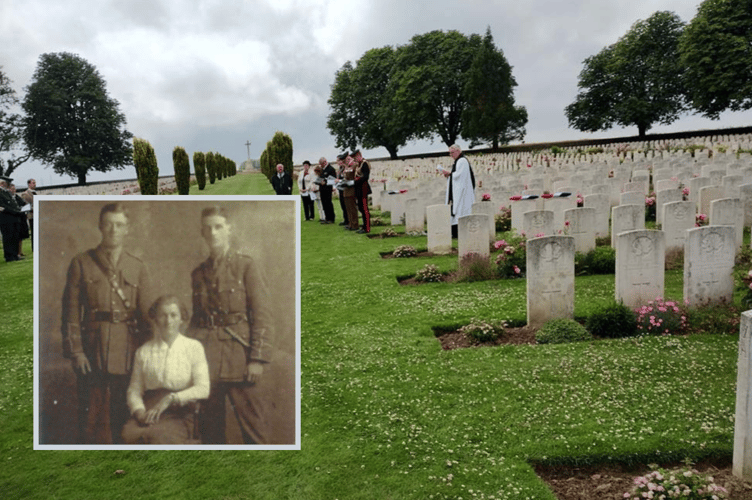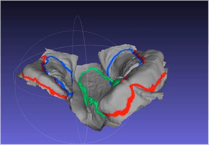The grave of a soldier from Ystrad Meurig, who went missing in France and Belgium alongside colleagues from Welsh regiments during World War One, has now been marked more than a century after his death.
Second Lieutenant Noel Osbourne Jones is one of six soldiers whose graves were only identified recently after researchers submitted cases to the Commonwealth War Graves Commission’s (CWGC). While they had been buried at the times of their deaths, their names had been lost.
Further research by the MOD’s Joint Casualty and Compassionate Centre (JCCC), the CWGC, and the National Army Museum, used sources such as war diaries, service records, grave registration reports and other documents.
Following this, the original findings were confirmed allowing each soldier to be commemorated by name.
The grave re-dedication services were organised by JCCC, and saw named headstones provided for Second Lieutenant (2/Lt) Noel Osbourne Jones; 2/Lt Herbert Taggart; Private (Pte) Lionel Grove and Captain (Capt) Clifford Nichols, all of the Royal Welsh Fusiliers, as well as Lance Corporal (L/Cpl) Arthur Dowding of the Monmouthshire Regiment and Pte George Price of the South Wales Borderers.
Noel Osborne Jones was born in 1895 in then-Cardiganshire to Robert Osborne Jones and his wife Ada.
Robert was a School Master, and by the time of the 1901 census the family were living in the Tregaron area with four sons; David George, Robert Noel, Martin Thomas and Iorwerth Hywel.
By 1911 they had moved to the Ystrad Meurig area where their descendants still live today.
2/Lt Noel Osborne-Jones, 2/Lt Herbert Taggart, and Pte Lionel Grove were all killed on 8 May 1916 while conducting a trench raid.
Their bodies were recovered by the Germans and buried by them at Fournes, before being moved to the Cabaret Rouge Cemetery after the war.
Unfortunately, the Germans did not know their names, and as such they identified their bodies only by rank and regiment.
Following the war, all three men were named on the Memorial to the Missing at Loos.
Xavier Puppinck, France Area Director at CWGC, said: "It is an honour to care for the graves of these six valiant soldiers who went missing in France and Belgium during World War One.
“They paid the ultimate price whilst fighting on the Western Front, more than 100 years ago.
“And now, it is our privilege and duty to care for their graves in perpetuity.”





Comments
This article has no comments yet. Be the first to leave a comment.